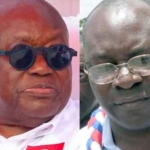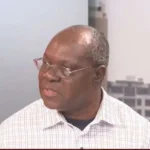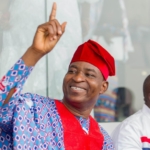
Renowned lawyer and law lecturer, Thaddeus Sory, has reaffirmed his unwavering commitment to legal ethics, saying he refuses to be provoked into breaking professional rules no matter the pressure or public criticism he faces.
Speaking on JoyNews’ PM Express with Evans Mensah, Mr. Sory said his restraint in public commentary, especially on matters before the courts, stems from deep personal principles and professional discipline.
“It’s based on my upbringing. I also relate with people who believe in standards,” he said. “If you find that I’m committed to a particular principle that I say I won’t violate, it’s because I believe in standards.”
Mr. Sory emphasized that the ethical duty of lawyers is clear — to argue their cases in court, not in the media or public domain.
“As a lawyer, your duty is to conduct your case in the courtroom, not in the court of public opinion,” he stated.
“There’s no reason why I should depart from it only because people want to upset you or provoke you to do what they know you shouldn’t do. You should remain focused.”
The lawyer’s comments come against the backdrop of his role in one of Ghana’s most consequential legal proceedings in the Fourth Republic — the process that led to the removal of a sitting Chief Justice.
Reacting to a question about the then-suspended Chief Justice Gertrude Araba Sackey Torkornoo’s press conference on an in-camera process, Mr. Sory recalled that he had swiftly responded to correct what he described as deliberate misinformation.
“I reacted almost 30 minutes right after she did it,” he said. “If a serving Chief Justice should descend that low — she’s not just a Chief Justice, she’s a lawyer of so many years’ experience — she should not be the one setting that bad example, and I had to do that to correct that point.”
He explained that his intervention was necessary because the Chief Justice had put out “deliberate falsehoods that the public needed to know about.”
“As a professional, there are two things I owe the public,” he noted.
“One of them includes serving the public. If I realise that a lawyer, serving Chief Justice at the time and a judge of so many years’ experience, has gone out to mislead the public, I owe it as a duty to the public to let them know exactly what the truth is.”
Mr. Sory admitted that his public response could be seen as an exception to his usual restraint but said it was justified by his duty to truth.
“On that occasion, I violated the rule, but in another context, I didn’t,” he explained. “Because I also owe the public the responsibility to ensure that they knew exactly what was going on.”
His remarks underline the delicate balance between professional ethics and public accountability — a line he insists must not be crossed lightly, even in the face of provocation or public pressure.




